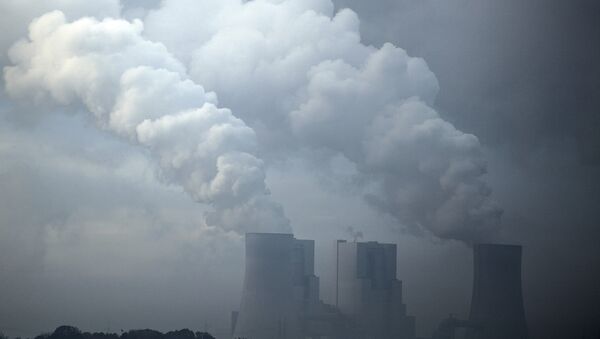Kristian Rouz – New reports detail the decline in Europe’s coal-energy generation, due to generous state budget subsidies to renewables, and the excessive reliance on imported oil and natural gas. Strict environmental regulations add to the problem for coal producers, undermining the continent’s self-sustainability, and carrying the risk of exposing citizens to global economic shocks.
READ MORE: North China's Coal Ban Leaves Rural Residents Freezing
European Union officials, along with the dominant left-wing parties across Europe, have led a crusade against coal energy for decades, citing their concern that it contributes to man-made climate change.
Analysts from London-based think tank firm Carbon Tracker Initiative say the vast majority of Europe’s 619 coal power stations are bleeding money. The industry is planning to cut costs by decreasing its operational capacity in the coming years, as it struggles against the government-subsidized renewables and cheaper energy imports.
Carbon Tracker says Europe’s coal industry is poised to lose up to 22 bln euros by 2030 unless the EU – or national governments – reassess their environmental policies.
"The changing economics of renewables, as well as air pollution policy and rising carbon prices, has put EU coal power in a death spiral," Matt Gray of Carbon Tracker said. "Utilities can’t do much to stop this other than drop coal or lobby governments and hope they will bail them out."
Across the Atlantic, President Trump is actively working to boost America’s energy self-sustainability by deregulating the energy industry and boosting coal energy production. His administration seeks to bring down the costs of living, manufacturing production, and doing business, in order to spur the nation’s faltering GDP growth.
EU officials, on their part, appear to be more interested in clean energy, regardless of it its economic efficiency.
"Traditional economics, based on supply, demand and market equilibrium, has all but disappeared. Our preference would be to see decarbonization take place under the economically efficient EU emissions trading system," Brian Ricketts, secretary-general of Euracoal said.
Ricketts also stressed renewable energy sources are unreliable, whilst the costs of oil and gas imports are unpredictable and could be manipulated by foreign suppliers to their benefit.
READ MORE: Activist: Massive South Dakota Oil Spill Threatens Sacred Sites, Huge Aquifer
This despite energy costs is poised to increase across the continent by that same year. The European coal industry is dying as the EU economy is becoming less reliant on open market economic mechanisms, according to the experts of Debating Europe.
A UN climate change summit in November started a new initiative, mandating 19 nations to abandon coal completely.
"The time of coal has passed," British climate minister Claire Perry said.
However not every country is playing ball, mainland China has been enjoying massive economic benefits by using the cheapest energy resources available – primarily, coal, although it too has been moving slowly towards greater consumption of gas and oil, and has vowed to invest $782 billion into renewable energy by 2030.



